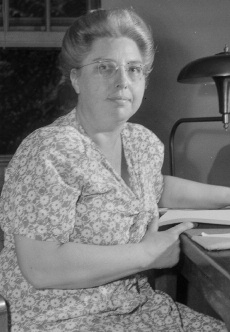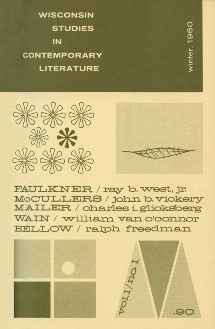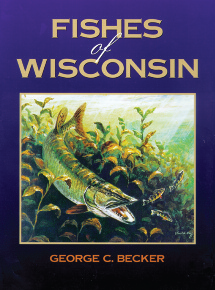
Journal of Human Resources contributor Matthew A. Kraft believes that we do teachers and students a disservice when we assess teachers based mainly on students’ standardized test scores. His article “Teacher Effects on Complex Cognitive Skills and Social-Emotional Competencies,” which will be published in the Winter 2019 issue of JHR, examined teachers’ influence on students’ social-emotional abilities. These include such qualities as growth mindset, perseverance, and effort in class, which have been linked to employment and health outcomes in later life. Kraft also studied student performance on complex open-ended tasks in math and reading—problems more complicated than those required by multiple choice tests—to understand how teachers affect critical thinking skills. Kraft found that a teacher’s ability to impact students’ standardized test scores was not always a good indicator of that teacher’s effectiveness at fostering complex cognitive skills and social-emotional skills, suggesting that we need better methods of evaluating teacher performance.
Kraft, who is an Associate Professor of Education and Economics at Brown University, joined us for a conversation touching on his background as an educator, his ideas on effective teaching techniques, and other topics. To learn more, read about the article on the JHR blog.
How did your time as a public school teacher influence your drive to research topics in education and/or the direction of that research?
As a public school teacher in Oakland and Berkeley, California, I often felt that teaching social-emotional skills had to come before teaching academic content. I tried to help my ninth grade students, most of whom were identified as at risk of dropping out, to feel like they belonged in school, to control their behavioral impulses, and to see value in what they were learning. My students did not take standardized tests, but if they did I doubt their performance would have captured the multiple ways in which I attempted to help them develop as young adults.
Do you remember any particular teachers that helped you develop social-emotional skills as a student?
I don’t ever remember being explicitly taught social-emotional skills. Instead, I remember teachers like Ms. Thomas, my tenth and twelfth grade English teacher, who set extremely high expectations but provided constant support to help us meet these expectations. She helped me to develop my own self-efficacy and perseverance by the way she taught core academic content.
Do you have a sense of what techniques teachers could use to develop students’ complex cognitive skills? Social-emotional skills? Maybe give an example or two.
In my opinion, project-based learning holds great promise for developing complex cognitive skills. Examples such as the curriculum developed by EL Education (formerly Expeditionary Learning) illustrate how authentic and complex tasks require students to use a multitude of skills rather than practicing individual skills in abstract isolation on worksheets.
How to teach social-emotional skills is very much an open question. I’m convinced that the best teachers both explicitly narrate and reinforce the value of these skills, while also designing their curriculum and pedagogical approaches to support their development through academic work. I think we learn things like persistence not by being told about the value of this skill, but by experiencing small successes in overcoming challenges with the support of educators.
What is one takeaway from your article that you’d like to communicate to nonscholars or policy makers?
Our understanding of teacher effectiveness, as well as the multiple measures used in new teacher evaluation systems, fail to capture the full range of ways in which teachers affect students’ success in school and life.
After this publication, where did your research go? Did you find yourself pursuing similar questions or changing course?
My current work in this area is focused on the importance of students’ sense of belonging in schools. Preliminary results suggest that schools and teachers who help support students to feel like they belong are creating environments where students develop their academic and social-emotional skills at faster rates.
 Matthew Kraft is an Associate Professor of Education and Economics at Brown University. His research and teaching interests include the economics of education, education policy analysis, and applied quantitative methods for causal inference. His primary work focuses on efforts to improve educator and organizational effectiveness in K–12 urban public schools. He has published on topics including teacher coaching, teacher professional growth, teacher evaluation, teacher-parent communication, teacher layoffs, social and emotional skills, school working conditions, and extended learning time. His research has been featured in The Economist, the New York Times, the Wall Street Journal, the Washington Post, Education Week, The 74 Million, public radio, and several blog sites.
Matthew Kraft is an Associate Professor of Education and Economics at Brown University. His research and teaching interests include the economics of education, education policy analysis, and applied quantitative methods for causal inference. His primary work focuses on efforts to improve educator and organizational effectiveness in K–12 urban public schools. He has published on topics including teacher coaching, teacher professional growth, teacher evaluation, teacher-parent communication, teacher layoffs, social and emotional skills, school working conditions, and extended learning time. His research has been featured in The Economist, the New York Times, the Wall Street Journal, the Washington Post, Education Week, The 74 Million, public radio, and several blog sites.
 features the first introduction by new editor Brian Lee, Professor of Landscape Architecture at the University of Kentucky. Lee takes over for previous co-editors David Pitt (University of Minnesota) and Daniel Nadenicek (University of Georgia), and this most recent volume of Landscape Journal is the result of a collaboration between the two editorial teams, with Pitt and Nadenicek selecting the content and Lee moving the issue into production with UW Press staff.
features the first introduction by new editor Brian Lee, Professor of Landscape Architecture at the University of Kentucky. Lee takes over for previous co-editors David Pitt (University of Minnesota) and Daniel Nadenicek (University of Georgia), and this most recent volume of Landscape Journal is the result of a collaboration between the two editorial teams, with Pitt and Nadenicek selecting the content and Lee moving the issue into production with UW Press staff.


 Matthew Kraft is an Associate Professor of Education and Economics at Brown University. His research and teaching interests include the economics of education, education policy analysis, and applied quantitative methods for causal inference. His primary work focuses on efforts to improve educator and organizational effectiveness in K–12 urban public schools. He has published on topics including teacher coaching, teacher professional growth, teacher evaluation, teacher-parent communication, teacher layoffs, social and emotional skills, school working conditions, and extended learning time. His research has been featured in The Economist, the New York Times, the Wall Street Journal, the Washington Post, Education Week, The 74 Million, public radio, and several blog sites.
Matthew Kraft is an Associate Professor of Education and Economics at Brown University. His research and teaching interests include the economics of education, education policy analysis, and applied quantitative methods for causal inference. His primary work focuses on efforts to improve educator and organizational effectiveness in K–12 urban public schools. He has published on topics including teacher coaching, teacher professional growth, teacher evaluation, teacher-parent communication, teacher layoffs, social and emotional skills, school working conditions, and extended learning time. His research has been featured in The Economist, the New York Times, the Wall Street Journal, the Washington Post, Education Week, The 74 Million, public radio, and several blog sites.


 ularly received praise and thanks from the authors with whom she worked, and her mentoring of the journal’s graduate-student editorial assistants was much appreciated. The editorial office staff of the journal and staff at UW Press wish Mary the very best.
ularly received praise and thanks from the authors with whom she worked, and her mentoring of the journal’s graduate-student editorial assistants was much appreciated. The editorial office staff of the journal and staff at UW Press wish Mary the very best.



 is among the most important journals in the field of microeconomics, with research relevant not only to scholars but to current debates in public policy. Findings and analysis published in JHR are often covered by major news organizations, including the New York Times, Washington Post, Huffington Post, NBC’s Today Show, CNBC, and National Public Radio. The journal’s scope includes the economics of labor, development, health, education, discrimination, and retirement.
is among the most important journals in the field of microeconomics, with research relevant not only to scholars but to current debates in public policy. Findings and analysis published in JHR are often covered by major news organizations, including the New York Times, Washington Post, Huffington Post, NBC’s Today Show, CNBC, and National Public Radio. The journal’s scope includes the economics of labor, development, health, education, discrimination, and retirement. PAUL HARRIS At the end of your introduction, you cite the “Big Rock,” a glacial erratic on a hill in your neighborhood growing up, as a sort of original inspiration in your lifelong explorations in lithophilia, literary and otherwise. Can you flesh out a bit more how you came to have a strong affective resonance with stone? Are there other specific stones or sites that stand out in retrospect as exerting a particularly powerful influence on you?
PAUL HARRIS At the end of your introduction, you cite the “Big Rock,” a glacial erratic on a hill in your neighborhood growing up, as a sort of original inspiration in your lifelong explorations in lithophilia, literary and otherwise. Can you flesh out a bit more how you came to have a strong affective resonance with stone? Are there other specific stones or sites that stand out in retrospect as exerting a particularly powerful influence on you? Paul A. Harris is co-editor of
Paul A. Harris is co-editor of 



 Land Economics, Arctic Anthropology, and Monatshefte. Five of these continue as UWP journals, joined by later acquisitions.
Land Economics, Arctic Anthropology, and Monatshefte. Five of these continue as UWP journals, joined by later acquisitions. available
available  2010s Several new book series are launched:
2010s Several new book series are launched: